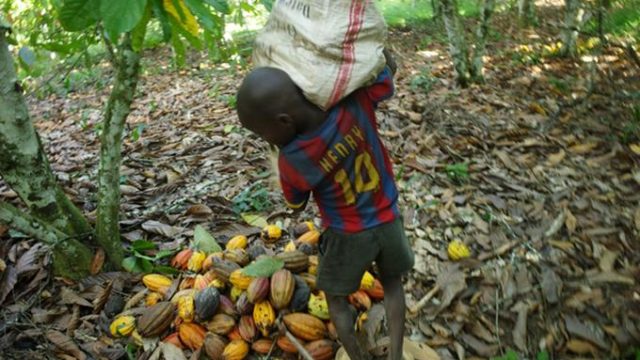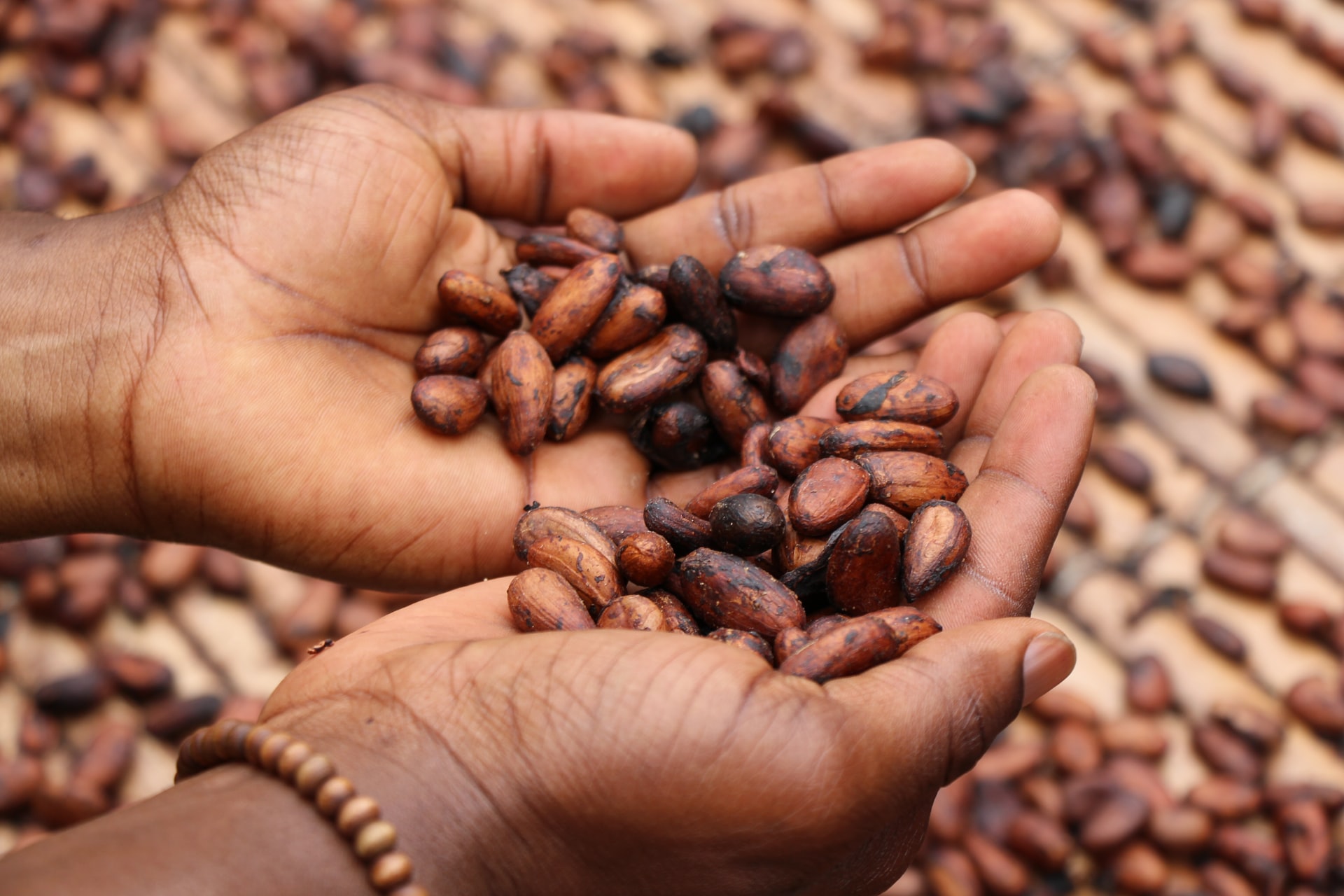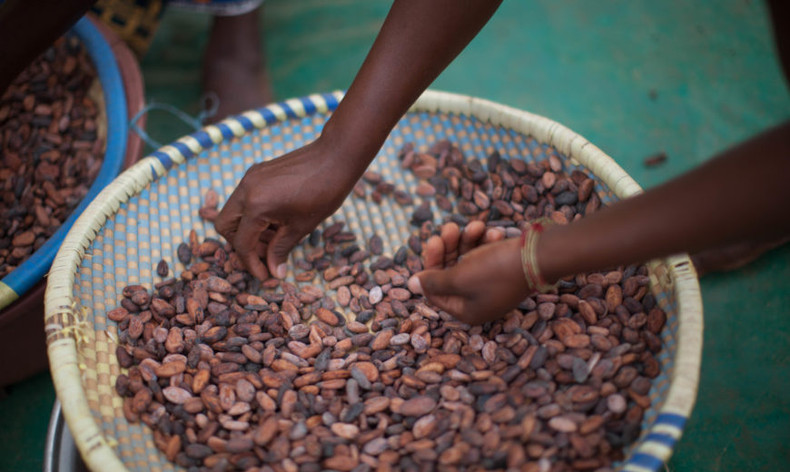
The media has been diligent in their reporting of child labour practices in the cocoa industry in West Africa. Charley’s Chocolates website provides a useful summary at Our planet
Dated Sat 13 Feb 2021 the Guardian’s Oliver Balch posted ‘Mars, Nestlé and Hershey to face child slavery lawsuit in US’ The article states that:
‘eight children who claim they were used as slave labour on cocoa plantations in Ivory Coast have launched legal action against the world’s biggest chocolate companies. They accuse the corporations of aiding and abetting the illegal enslavement of “thousands” of children on cocoa farms in their supply chains.
Nestlé, Cargill, Barry Callebaut, Mars, Olam, Hershey and Mondelēz have been named as defendants in a lawsuit filed in Washington DC by the human rights firm International Rights Advocates (IRA), on behalf of eight former child slaves who say they were forced to work without pay on cocoa plantations in the west African country…
A central allegation of the lawsuit is that the defendants, despite not owning the cocoa farms in question, “knowingly profited” from the illegal work of children. According to the submissions, the defendants’ contracted suppliers were able to provide lower prices than if they had employed adult workers with proper protective equipment.’
This is the first time that a class action of this kind has been filed against the cocoa industry in a US court. Until now the companies have been party to the Harkin–Engel Protocol for the elimination of Child Labor.
The H-E protocol has been criticised by some groups, including the International Labor Rights Forum, as an industry initiative which falls short.
It seems the International Rights Advocates have lost patience and are taking legal action.
It is always interesting to see the response of the companies. Here is a selection from the Guardian article.
‘Cargill said: “We are aware of the filing and while we cannot comment on specifics of this case right now, [the company wants to reinforce we have no tolerance for child labor in cocoa production. Children belong in school. They deserve safe living conditions and access to good nutrition.”
Nestlé said that the lawsuit “does not advance the shared goal of ending child labor in the cocoa industry” and added, “child labor is unacceptable and goes against everything we stand for. Nestlé has explicit policies against it and is unwavering in our dedication to ending it. We remain committed to combatting child labor within the cocoa supply chain and addressing its root causes as part of the Nestlé Cocoa Plan and through collaborative efforts.”
Responding to news of the lawsuit, a Mars spokesperson said: “We don’t comment on any possible pending litigation.”
Mondelēz said it did not wish to comment.
Barry Callebaut said it has committed to eradicating child labour from its supply chain by 2025. “Every year we publish the progress we have made against this target in our Forever Chocolate progress report,” it said.
An Olam spokesperson said that the company has a zero-tolerance policy for forced or slave labour in their supply chain. “If we were to identify any instances, we would immediately take action which includes notifying the appropriate authorities,” they said.

Commentary
I find it difficult to appreciate the ongoing desire to suppress the earnings of subsistence cocoa farmers in West Africa. The cost of cocoa in a typical chocolate bar can be minimal. Grant Vinning sends an email newsletter with the Daily ICCO Prices of Cocoa. The typical average price of a metric tonne of cocoa beans (1,000 kg) is US$2,500
The amount of cocoa in a chocolate bar varies from as low as 25% for commercial chocolate to 70% for single origin chocolate. Some bars have a higher percentage of cocoa.
Allowing for wastage (30%) in converting beans to nibs the farm cost of a kilogram of cocoa is less than Aus$5 (50cents per 100gm) - which for a 100-gram bar is Aus$0.125 at 25% cocoa to Aus$0.35 at 70%.
In Australia a 100gm chocolate bat typically sells from $2 at Woolworths (25% – 35% cocoa) or $10/80gm bar from Charley's (70% cocoa)
A 50% increase in the price paid for West African cocoa would not particularly affect sales. Should Australian’s be uninvolved and stay silent as children are deprived of an education in order to keep the price of chocolate bars at artificially low prices?
What do you think?
References
Mars, Nestlé and Hershey to face child slavery lawsuit in US | Child labour | The Guardian
A personal comment from Grant Vinning - chocolate watcher extraordinaire
It fills me with sadness seeing Mars mentioned. I have taken people from Solomon Islands and PNG to the Mars Academy on Sulawesi. The Mars people there were unstinting in the knowledge that they passed on. And for free.
Re Mondelez. In 2019 I visited the Cadbury Archives in Birmingham. I came away super-impressed with Cadbury. Yes, they were good business people – nearly all Quakers were. But true to their faith they were extraordinarily generous and socially responsible. The gap between Cadbury and Mondelez is the same as between statement and action with regard to child labour, deforestation, and the Living Income Differential.

